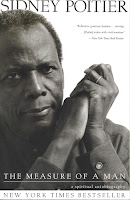When Moses arrived on the top of Mount Nebo in Jordan, how
did he know this was the land he had announced to his people, the Promised Land?
The objective truth is: he didn’t know. Perhaps the view is magnificent as we can see on
the picture, but there were other people and other armies down there. It is reasonable
to assume Moses got tired roaming through the desert for forty years. Otherwise,
there was no objective fact indicating this was the end destination for his
people.
The book of Exodus, which tells the story of Israel’s people
leaving Egypt under Moses and his brother Aaron’s leadership, is a splendid
manual on leadership. Don’t get me wrong, I don’t read the scriptures because
they are useful. I read them because I love them. I love them because they are
beautiful and because I feel like they could make me a better person. But for
those of you who don’t love the scriptures, beware the book of Exodus contains all
you need to know about leadership.
The Bible says Moses knew from God. But how does God speak
to man? It never happens through objective reasoning. Moses didn’t have any
useful objective data that would have allowed him to make a reasonably good
decision. Moses knew almost nothing about the land in front of him and the
strength of its armies. He needed to rely on his inner voice, through
intuition, prayer, belly feeling, dreaming, sense of responsibility and love
for his people, in short through his own subjectivity.
If good leadership in difficult circumstances requires
subjectivity, it has a serious implication for the leader. The people need to
believe him. They need to give him the authority to rely on his personal
subjective feelings. They will only do this if they believe he is good, wise
and integer. And this belief is usually based on some common experience in extremely bad conditions, such as the experience in the Sinai desert.
If the people’s belief gets lost through some negative experience, the leader becomes
extremely vulnerable. The leadership crisis we observe today, is due to a lack
of common experience in the desert and a lack of willingness to grant authority to someone else, usually because of our own narcissism. The conclusion of this blog is that in leadership, subjectivity is objectively required.
I also refer to my Dutch blogs Leadership and Love and Dreamers Who Do.
Picture: Mount Nebo, Jordan, 2023 Courtesy of Patricia Deneffe







.JPG)












